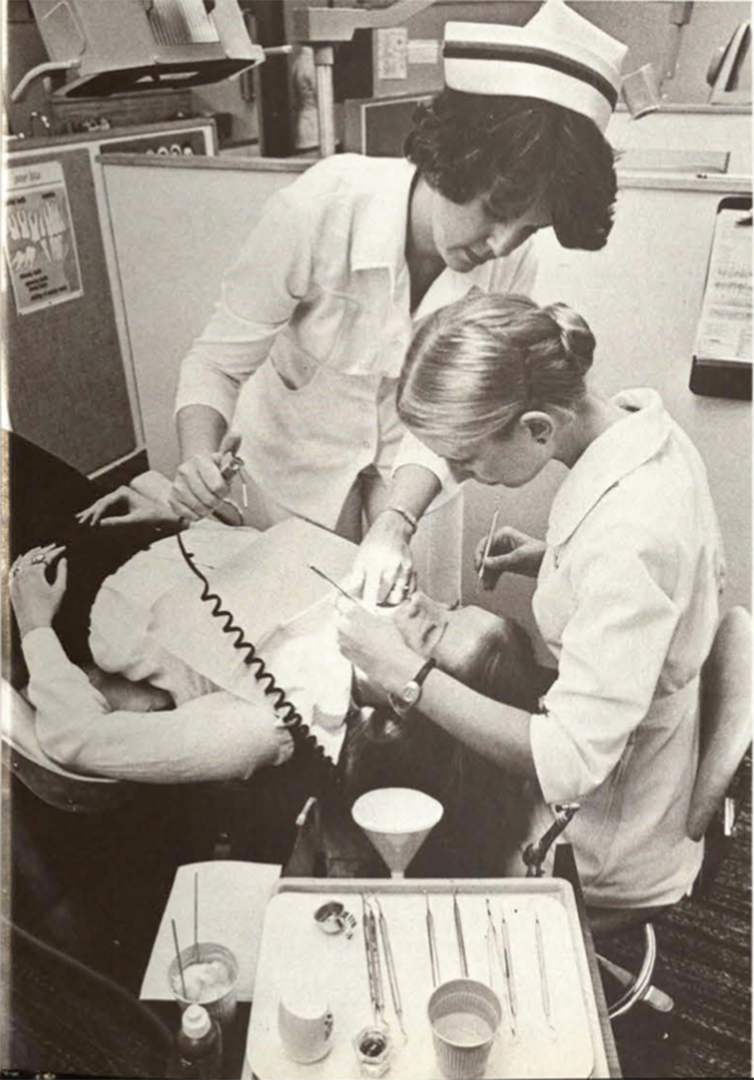Faculty spotlights
In celebration of our 50th anniversary, we are highlighting some longtime faculty members in the College of Health Professions. The College wouldn't be where we are today without our amazing faculty. Their role is vital to shaping the culture of our College and delivering a great student experience. Faculty are not only teaching, they're facilitating clinical rotations, presenting research and volunteering at community events. They put their heart and soul into teaching, and many contribute to scholarships and engage students in applied learning activities. Students often keep in contact with faculty after graduation and we love hearing what our alumni are doing! Thank you to our faculty for their dedication to our students, university and the health care industry!
Amy Drassen Ham, PhD, MPH
Amy Drassen Ham is a Clinical Professor in the Department of Public Health Sciences. Amy began teaching at WSU as a graduate teaching assistant in the Department of Anthropology in 1996 and continued as a lecturer from 1997 to 2003. She became an instructor in the Department of Public Health Sciences in 2001. She has designed dozens of classes and taught more than 200 course sections.
Tell us about the changes you have seen in the College of Health Professions during
your time at WSU.
Some of the most dramatic changes I’ve witnessed include technological advances. As
an early adopter of online options, the robust learning management systems, videos,
simulations, and access to new research created sophisticated methods for expanding
students’ learning experiences.
It’s also mind-blowing to witness expansion of our programs. Some of my courses have grown from about 15 to more than 160 students each year. While this progression is challenging to manage, it’s also remarkable to have this reach and share public health with so many students.
What makes working for the College of Health Professions special?
I love my faculty family, but it’s the students who make CHP special! We are privileged
in this college to have students who are driven by serving others. It’s an absolute
honor to be part of their preparation and my greatest joy is watching how they reshape
approaches to health inequity.
Why have you been with WSU for so long?
I’ve been part of this campus since 1988 with three of my degrees from WSU – so being
a Shocker is core to my identity!
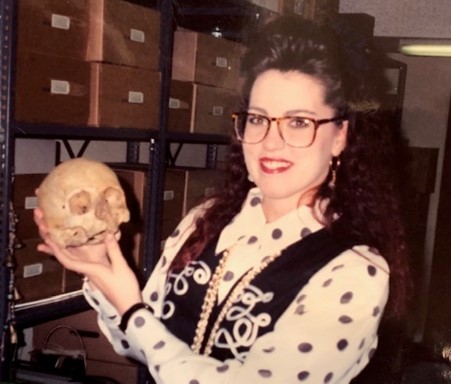
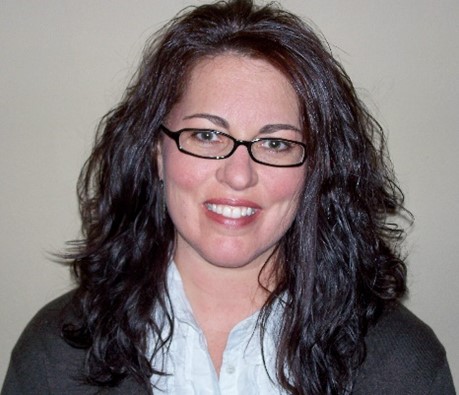
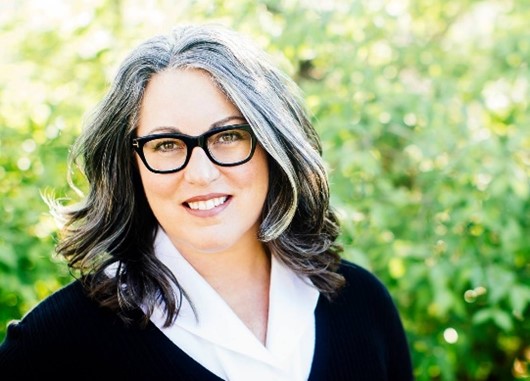
Alicia Huckstadt, PhD, APRN, FNP-BC, FAANP
Dr. Alicia Huckstadt is a Full Professor & Director of Graduate Nursing Programs for the School of Nursing.
The College of Health Professions and Wichita State University have always been a perfect fit for me. I am so fortunate to have combined my roles as a family nurse practitioner, a researcher, an administrator, and an educator into a faculty role. Learning has been the essential catalyst for me in all the roles. The College has provided numerous opportunities, support, and challenges that solidified this combination of roles. I knew I was in the right place, first as an educator in a grant funded program for alcohol education in the college, then as I taught in almost every undergraduate nursing course (except OB and peds) and then in the graduate nursing program. I was able to include an active faculty practice as a Family Nurse Practice for over twenty years with the WSU Student Health Services. I became the Director of the Graduate Nursing Programs in 2000 and secured over two million federal dollars for graduate nurse practitioner students to complete their education. I am particularly proud of the accomplishments of the thousands of students, alumni, and faculty in the School of Nursing who improve health care for individuals, families, and communities.
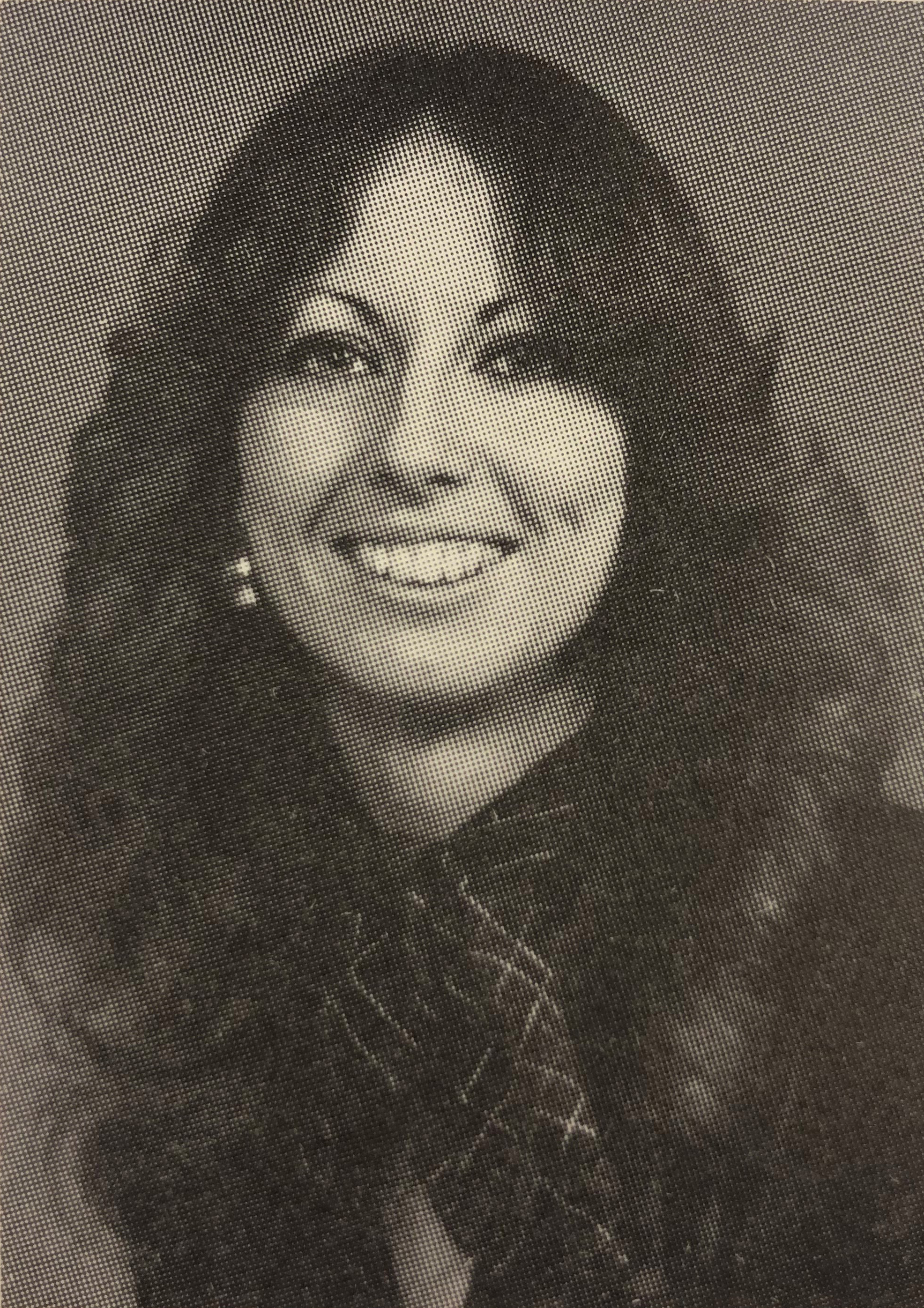
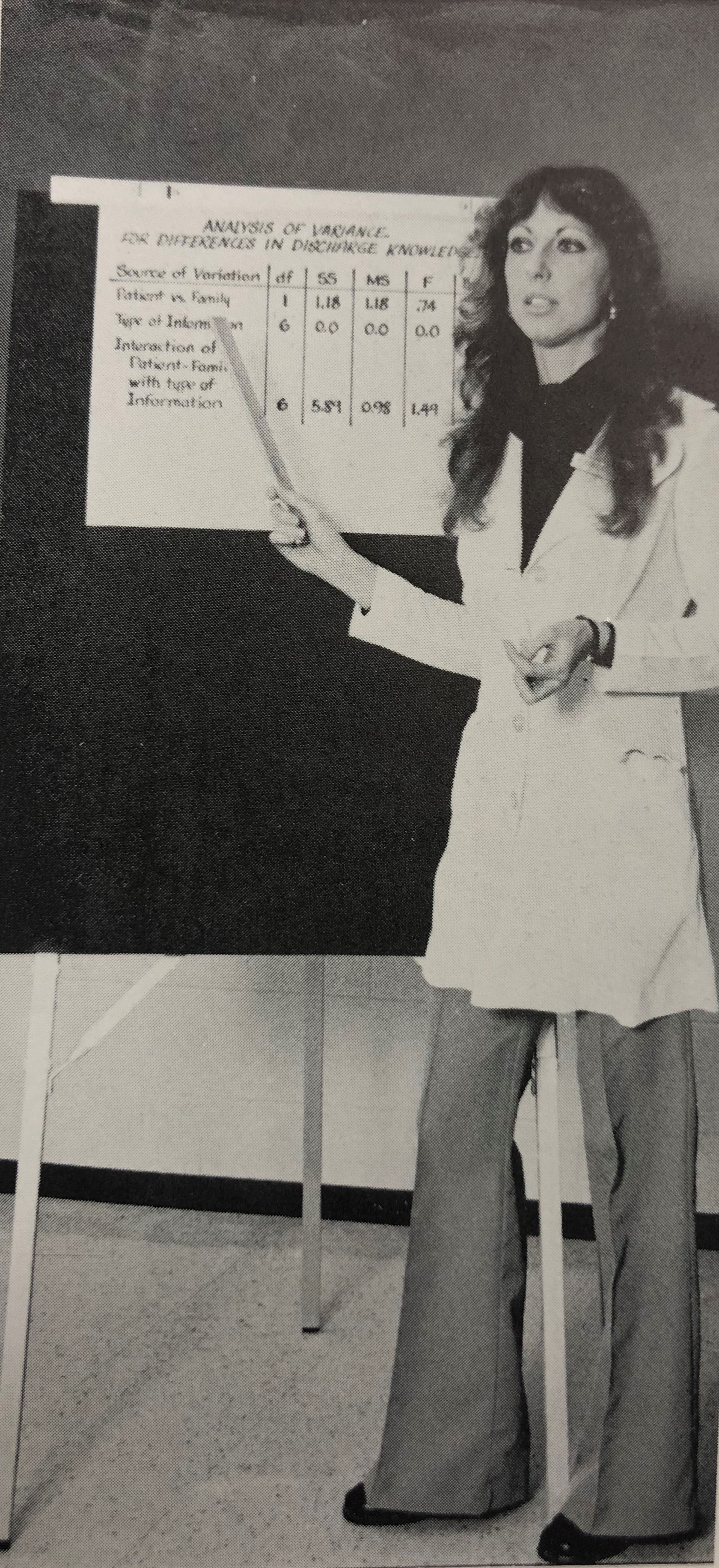
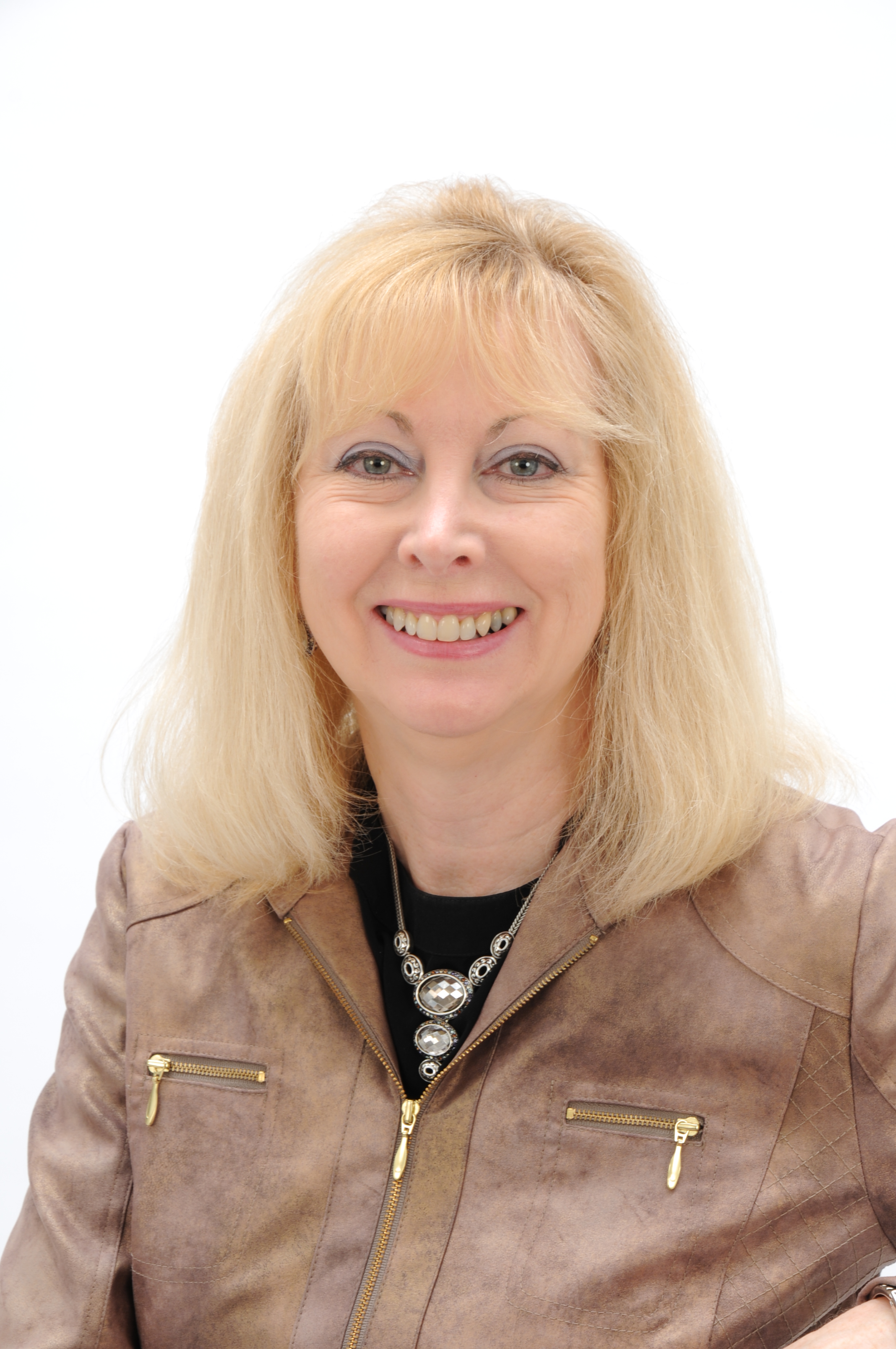
Raymond Hull, PhD, CCC-SLP/A
Raymond Hull is a Professor of Communication Sciences and Disorders and Audiology/Neuroscience.
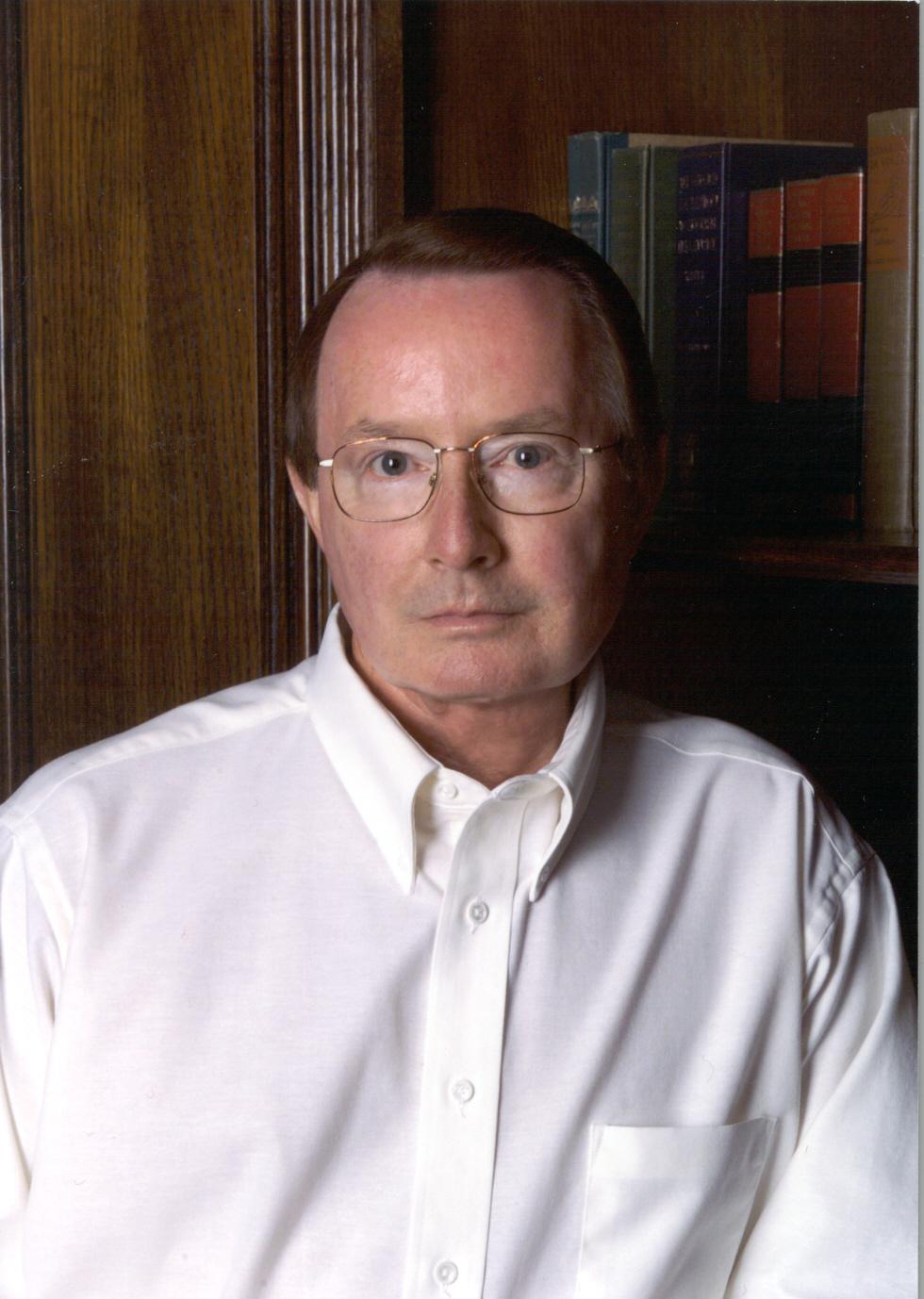
I was hired to begin in fall 1997.
What department(s) have you worked for or what courses have you taught?
I have been teaching in the Department of Communication Sciences and Disorders since
I was hired. I was also Director of Graduate Program Evaluation for the WSU Graduate
School for five of those years on a part time basis.
Tell us about the changes you have seen in the College of Health Professions during
your time at WSU.
We have had four Deans since I have been in the College of Health Professions. The
College has grown fairly significantly in student numbers, faculty and staff. The
Advanced Education in General Dentistry was established and built their own building
near the Metroplitan Complex, our Speech-Language Pathology and Audiology Clinics
were moved from Hubbard Hall to the Metroplitan Complex so that we would have additional space and more parking for patients. There have
been a number of changes and I can’t name them all here!
What makes working for the College of Health Professions special? Why have you been
with WSU for so long?
Even though I moved here from my University in Colorado where I was Chair of our Department
of CSD for 14 years, and was Director of Planning and Budget for the Office of the
President and I truly enjoyed working at my University and living in my beautiful
state of Colorado, I love working here because I very much appreciate my wonderful
students, I love our faculty and staff here in the College of Health Professions,
and I very much appreciate all of my friends and colleagues across the WSU Campus!!!
The people here are very special!!
Richard Muma, PhD, MPH, PA-C
Richard Muma is the Interim President at Wichita State University, and the former Professor and Chair for the Physician Assistant Program and Department of Public Health Sciences.
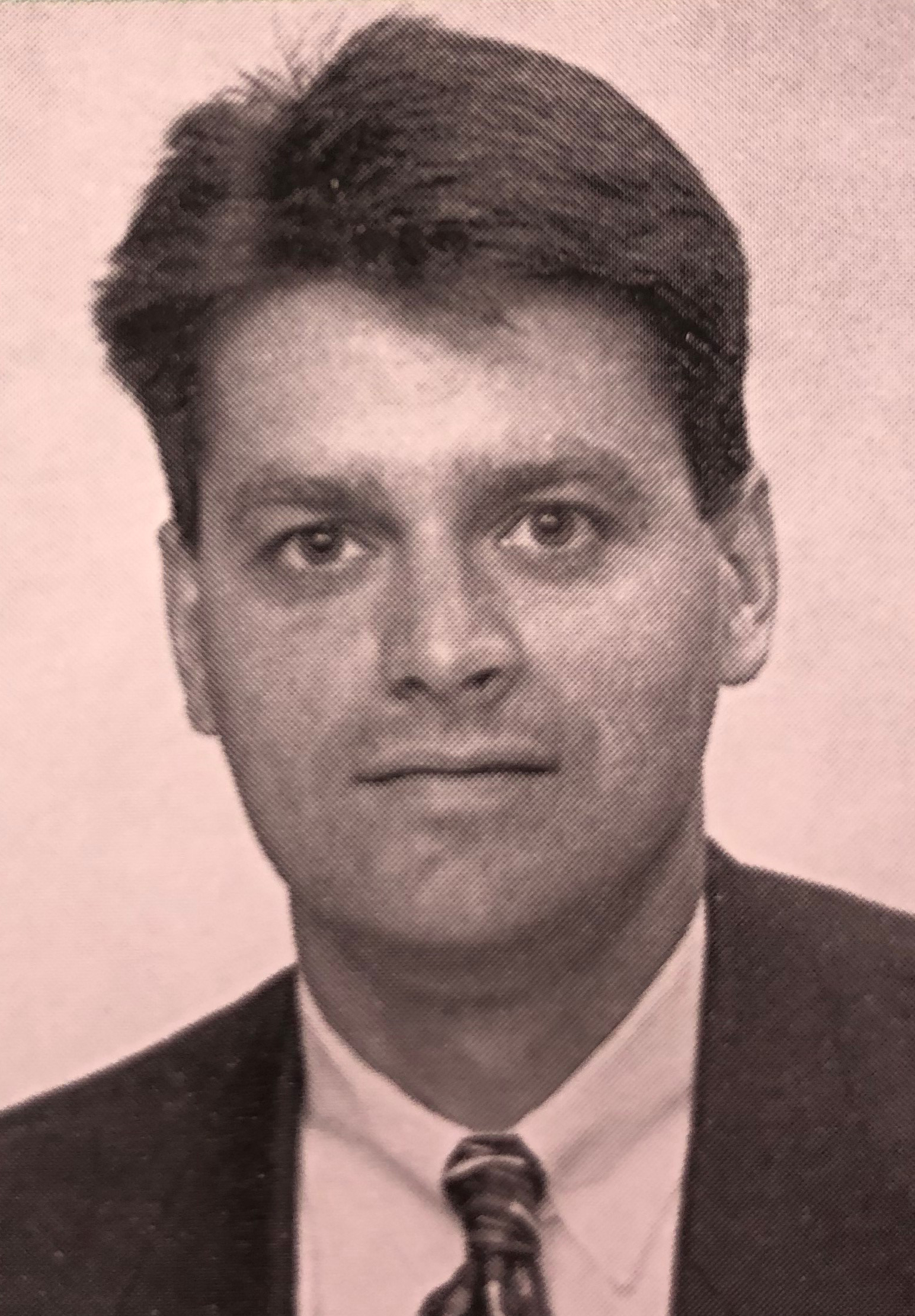
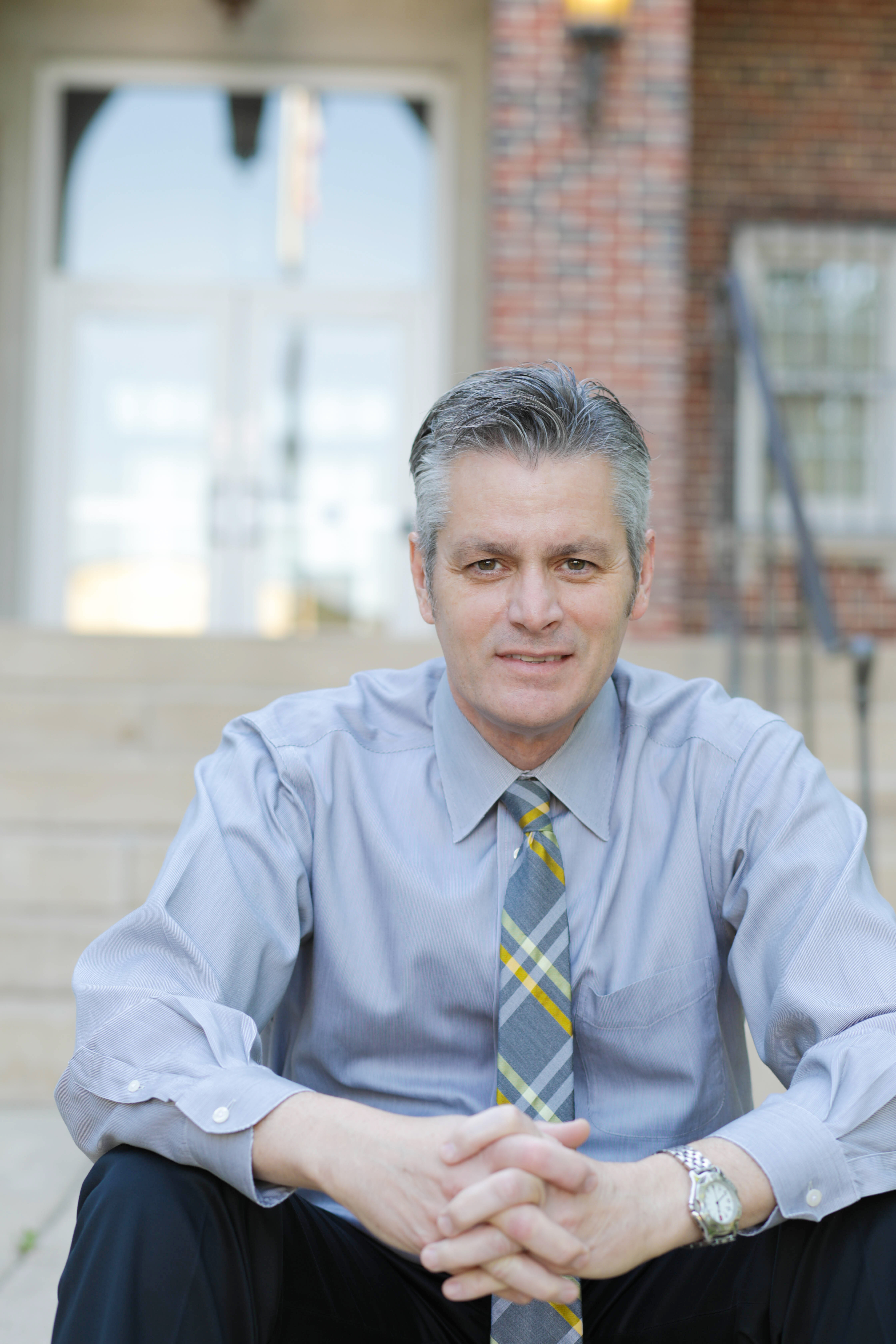 What year did you start teaching/working at WSU?
What year did you start teaching/working at WSU?
1994-1999; 2001-present
What department(s) have you worked for or what courses have you taught?
Physician Assistant and Public Health Sciences
Tell us about the changes you have seen in the College of Health Professions during
your time at WSU.
The stature of the college has been raised over the last 25 years locally, regionally,
and nationally. This is mostly due to its strong programs, which have become more
prominent and important to the delivery of health care in the U.S.
What makes working for the College of Health Professions special? Why have you been
with WSU for so long?
The people. We have a very dedicated group of faculty and staff, concerned about their
students; making sure they are able deliver quality health care and services as graduates.
Sue Nyberg, MHS, PA-C, DFAAPA
Sue Nyberg is a Professor and Director of Clinical Education for the Physician Assistant
Program.
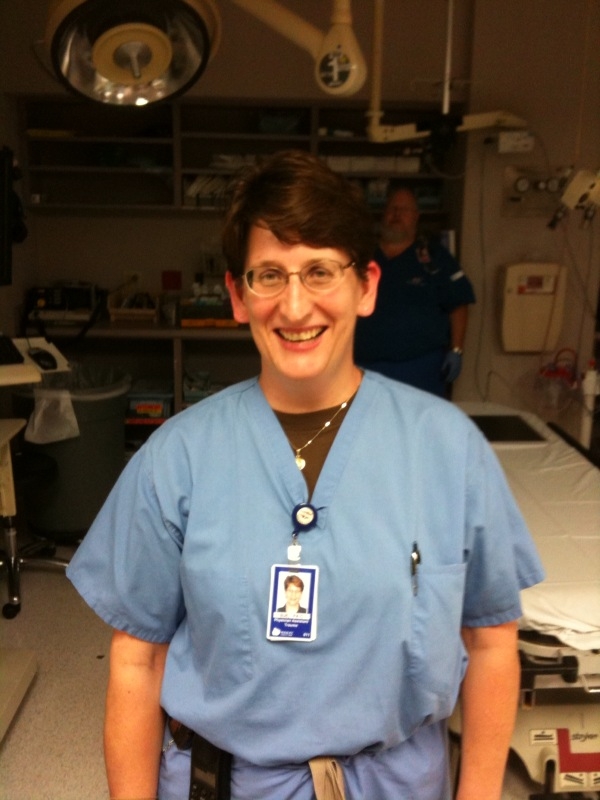
1996
What department(s) have you worked for or what courses have you taught?
Department – Physician Assistant
Courses Taught – over the years I’ve taught various didactic courses in Clinical Medicine
(gastroenterology, EENT, dermatology, musculoskeletal, PA Professional Issues, research
methods, alternative medicine) and currently am responsible for clinical medicine
rotation courses during the clinical phase of the PA Program. I was also fortunate
to be involved in the creation of CHP’s Leadership Academy as well as our anatomy
and physiology courses.
Tell us about the changes you have seen in the College of Health Professions during
your time at WSU.
One of the most significant changes I’ve seen in the CHP has been recognition of the
importance of individual leadership and interprofessional collaboration. In the early
days, each of the departments functioned very independently and even 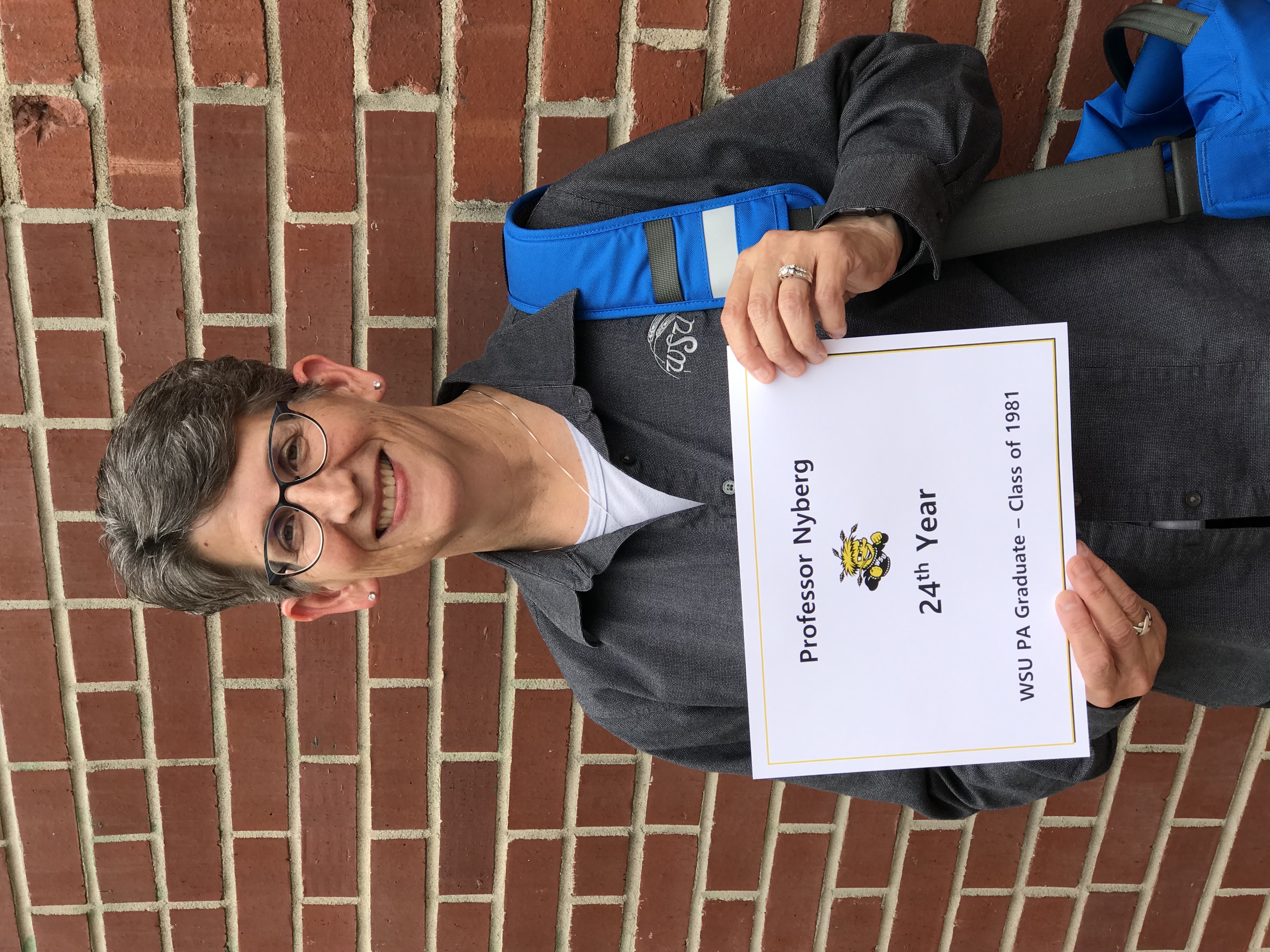
What makes working for the College of Health Professions special? Why have you been
with WSU for so long?
I am fortunate to have the privilege to teach, mentor and influence future providers
of healthcare. I also enjoy the opportunity to work with and learn from other talented
CHP faculty and staff in a collective effort to improve the education we provide to
our students.


